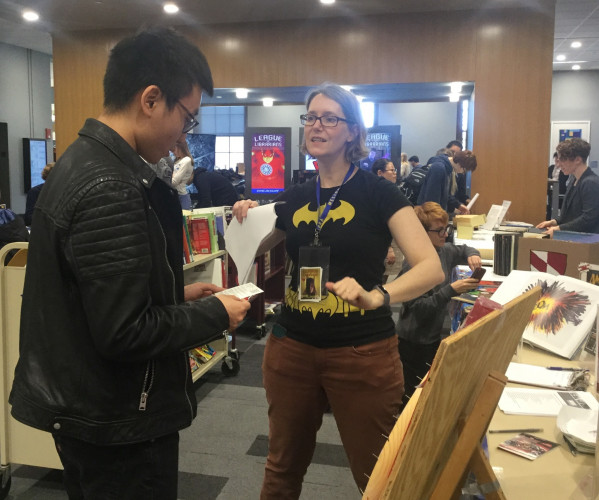Tips for success
- Utilize your subject librarian. Each major and concentration at the University of Rochester has its very own dedicated subject librarian, who can help with a range of topics, including getting started in research, developing a research topic, formatting citations, finding sources, and utilizing the library's many databases. Find your subject librarian.
- Familiarize yourself with research guides. Each academic subject has its own website that lists some of the best books and databases for research on that subject. Start exploring.
- Make a reference manager your best friend. This is how you can avoid working on citations at 3 a.m. on the day your paper is due. A reference manager can help you use programs like RefWorks or EndNote, which will automatically generate in-text citations and bibliographies in your papers. Use a reference manager.
- Take advantage of the Writing, Speaking, and Argument Program (WSAP). Need to write something for a class? Consult someone from WSAP. They are happy to provide tips, suggestions, and feedback, wherever you are in the writing process. You will find them on the ground floor of Rush Rhees Library (between iZone and the Art/Music Library). Make an appointment.
- Save money. Use Course Reserves. The libraries hold physical copies of materials that are required for certain classes. These items are available to borrow for short two-hour loan periods so that you may use them to work on homework or other assignments. Many of these items are available online as eBooks as well. Want to see what items the courses you are taking this semester have on reserve? Visit Course Reserves.
- Bookmark the libraries' Writing and Citing Guide. University-level writing requires you to write in a specific formatting style, use sources you’ve found through research, and cite those sources appropriately. The libraries’ Writing and Citing guide is your go-to for information on how to make this process as seamless as possible.
International students:
Please view our international student guide to get access to specific information that will help you thrive.What's Q&i?
Short for "Questions and information," this service connects you with the resources and services you need to succeed.
Q&i desks provide access to:
Borrowing
Borrowing books, movies, phone chargers, calculators, headphones, etc.
Reserves
A collaboration between library and faculty that ensures course-required materials (physical and electronic) are made available and accessible to students.
Interlibrary Loan
A service that borrows global and acts locally! ILL is a free service that borrows items for you (books, articles, etc.) beyond what the library already owns.
Pop-up programming

Pop-up programs are sporadic events that provide a specific service for a curricular-oriented activity at a designated time. Their main goal is to deliver help and support to faculty and students when they need it, in a place where they can't be missed.
When pop-ups take place in a public setting rather than a closed classroom space, they allow, encourage, and engage library users to participate in a hands-on learning experience. Pop-up programs often showcase works of innovation and collaboration and they are usually held in Rush Rhees Library's Evans Lam Square or Carlson Science Library's Tinker Space. Check out upcoming events.
General information
- Hours for our spaces can be found here.
- Contact staff:
- Rush Rhees Q&i desk: (585) 275-5804
- Carlson Q&i desk: (585) 275-4488
- Online chat
- Searches: Find articles, books, databases, movies, video games, and more through DiscoverUR. Use the "Advanced search" to narrow results.
- Study spaces: We have a mix of quiet, quietly collaborative, and collaborative study spaces at River Campus Libraries! Check out a complete list of our available study spaces. Check for signage in each area that indicates what noise level is appropriate in that space.
- Off-campus access: Use your NetID and password to connect to VPN, which will allow you to access library journals and databases wherever you are. Learn more about VPN.
- Due dates: Most library loans are due at the end of each semester. Items that have shorter loan periods include bound journals, popular reading, video games, gaming systems, DVDs, CDs, calculators, and chargers. Learn more about loan periods.
- Item limits: Undergraduate students may borrow an unlimited number of items with unlimited renewals (unless the item is recalled by another library patron).

